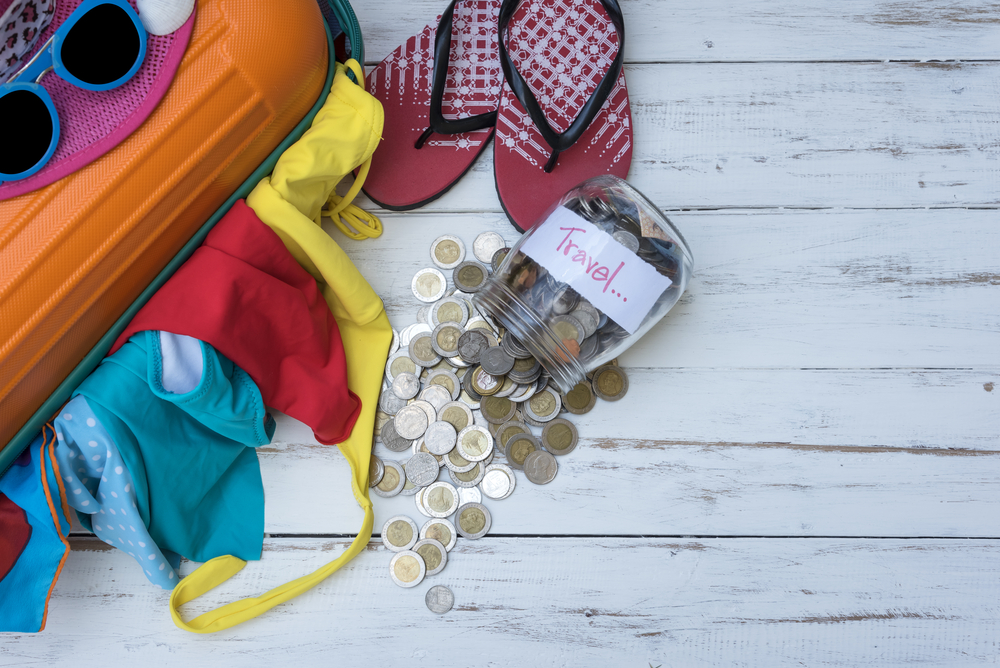News
How to find the best exchange rates for your leftover holiday money

Autumn is well and truly here and although you may have packed your suitcases away weeks ago, if you have leftover currency it’s time to think about exchanging it.
To make the most of your money, and get the best exchange rate, you’ll want to time when you change your money over.
The rate you get is affected by many things, including the currency you’re exchanging and the current global climate.
Economic events can also have a big impact on the strength of the pound against other currencies, which will also affect the amount of money you’ll get back after your holiday.
The British pound, for example, fell against the euro and the US dollar after yesterday’s announcement of a fall in the inflation rate, to 6.7% from 6.8% in July. The exchange rate for the pound to the euro fell by 0.37% to 1.1559 while the exchange rate for the dollar fell by 0.44% to 1.2338.
When you’re looking at exchange rates and trying to plan when the best time is to exchange you’re money, it’s worth looking at historical rates. You can find these on the website Compareholidaymoney and you can search back from one week to five years.
In the last year, for example, the euro to pound rate has fallen by -4.07%, from 0.8739 on 20 September 2022 to 0.8391 yesterday, according to Compareholidaymoney. While in the last five years, it fell by -5.28% from 0.8846 on 20 September 2018 to 0.8391 yesterday.
Ideally to get the best value for money, you’ll want to exchange your pounds when sterling is stronger than the other currency needed and exchange it back when the pound is weaker – so you end up with the highest returns possible.
If you check and your money is worth less than the price you exchanged it for, it may be worth waiting before you sell it back – or using a different method such as by exchanging it with friends or family members.
Iain Donachie, head of money services at Tesco Bank, commented: “There are a few options if you have leftover currency burning a hole in your pocket. You could keep it for another time, or you can change it back into sterling, where you could then possibly use it to buy another currency for a future trip to a different country.
“Exchange rates can vary every day, so if you are exchanging currency it pays to keep an eye on this so that you’re getting the best bang for your buck.
“When looking at where to exchange your leftover currency, it’s worth checking the exchange rates and shopping around for the best deal to get more bang for your buck. Tesco Bank offers a buy back service in our travel money bureaux – no matter where you bought it in the first place – and won’t charge a commission fee, meaning there’s no need to splash your leftover cash at the airport before you fly home.”
How to get the biggest returns on your leftover currency
Holidaymakers have an average of £130 in foreign currency when they return home, according to data from Tesco Bank, but where’s the best place to exchange the leftover cash and when should you do it?
There are several ways to do this to make sure you’re getting the maximum amount of cash back for your leftover holiday money.
Use a buy back service
There are lots of companies around which allow you to sell back unwanted foreign money. However, the rates vary so you’ll want to compare prices to see how much you will receive if you sell your leftover cash this way.
There are a few comparison websites which compare the rates on offer from companies offering a buy back service including Compareholidaymoney and the Travel Money Max tool from MoneySavingExpert. They allow you to quickly see how much you will receive for your foreign cash. You can then choose a firm to use and there will be options for online shops and those with branches.
When we checked, 100 euros today could be bought back for between £71.45 and £79.70, depending on the company used via Compareholidaymoney. With the Travel Money Max tool, the top price was £85.79.
If using an online service, there is also usually a postage fee of around £7 to factor in.
Exchange the money with friends or family members
You could sell your leftover money to a friend or family member if they’re due to go to away soon. There are several websites, including Xe.com or Oanda.com, which track exchange rates and can give you an idea of what price to charge.
Google and Bloomberg also publish currency data and can steer you in the right direction when trying to calculate the exchange rate.
Give to charity
Many charities run schemes whereby you can donate your leftover coins, usually into an envelope on the flight on your way home.
Charities such as Oxfam also take donations of foreign currency at their charity shops. The money is sorted and counted and then goes back into the charity.
Wait for your next trip
If you’ve checked the currency markets and your leftover money has slumped against the pound, you could always wait until it improves.
There’s no way of predicting when markets might turn again but if you keep a close eye on them, you should be able to wait until a time when you currency improves and you can exchange it into pounds without losing any money in the process.